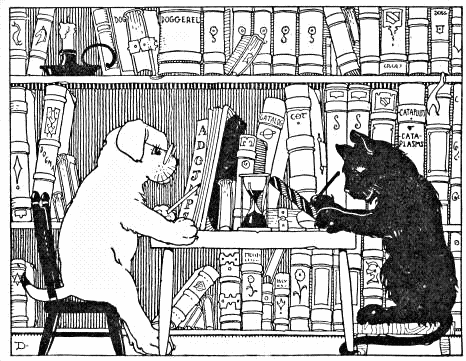 |
| http://www.wpclipart.com/education/reading/reading_2/cat_and_dog_in_library.png |
I feel like I've been extremely fortunate in my friends and contacts where I have someone(s) to turn to when I'm unsure of something, stressed out, or just have some good libraryland-related news to share that my non-librarian friends might not understand what the big deal is. A mentor doesn't have to be a great deal older than you to be effective: my ACRL Instruction Section mentor is only a few years older than me, but she can really relate to questions I ask and has a specific interest in early career issues. That's not to say a librarian with a decade or more of experience would be any less helpful: another mentor I have from when I was in library school is always supportive when I need some guidance and has scads of great advice to offer. Some of my mentors I don't even consider formal mentors, but I've admired them in some way or another, gotten to know them, and feel comfortable asking their opinion. It's invaluable to have a variety of perspectives as you make your way through your career.
One thing I was worried about when signing up for a formal mentorship program was that I didn't want the relationship to be all one-sided... I didn't want to feel like I was just taking and not giving anything back; but I do know in sharing experiences, and also offering a confidential ear, a mentoring relationship can certainly be useful to both parties.
If you're not sure where to start in finding a mentor, try looking at the associations you have membership in and see which offer mentorship programs; ALA Connect also has an option for your profile to add you to the mentoring community. If still in school, you can see if there is any faculty mentoring available or find a librarian on campus you can talk with. Being brand new doesn't have to be a scary thing, and even librarians with more experience seem to have mentors throughout their whole career. Building a great support network will get you through confusing times and build you up when there are exciting things to share.
Thanks for sharing your experience, Nicole. I think it can be very hard to find a mentor, and your suggestion of trying a professional organisation is probably the best approach.
ReplyDeleteI also find online networks very useful for finding mentors, even if they don't necessarily see themselves as my mentors, but I can take away things from exchanges that I might not otherwise have or encounter in real life.